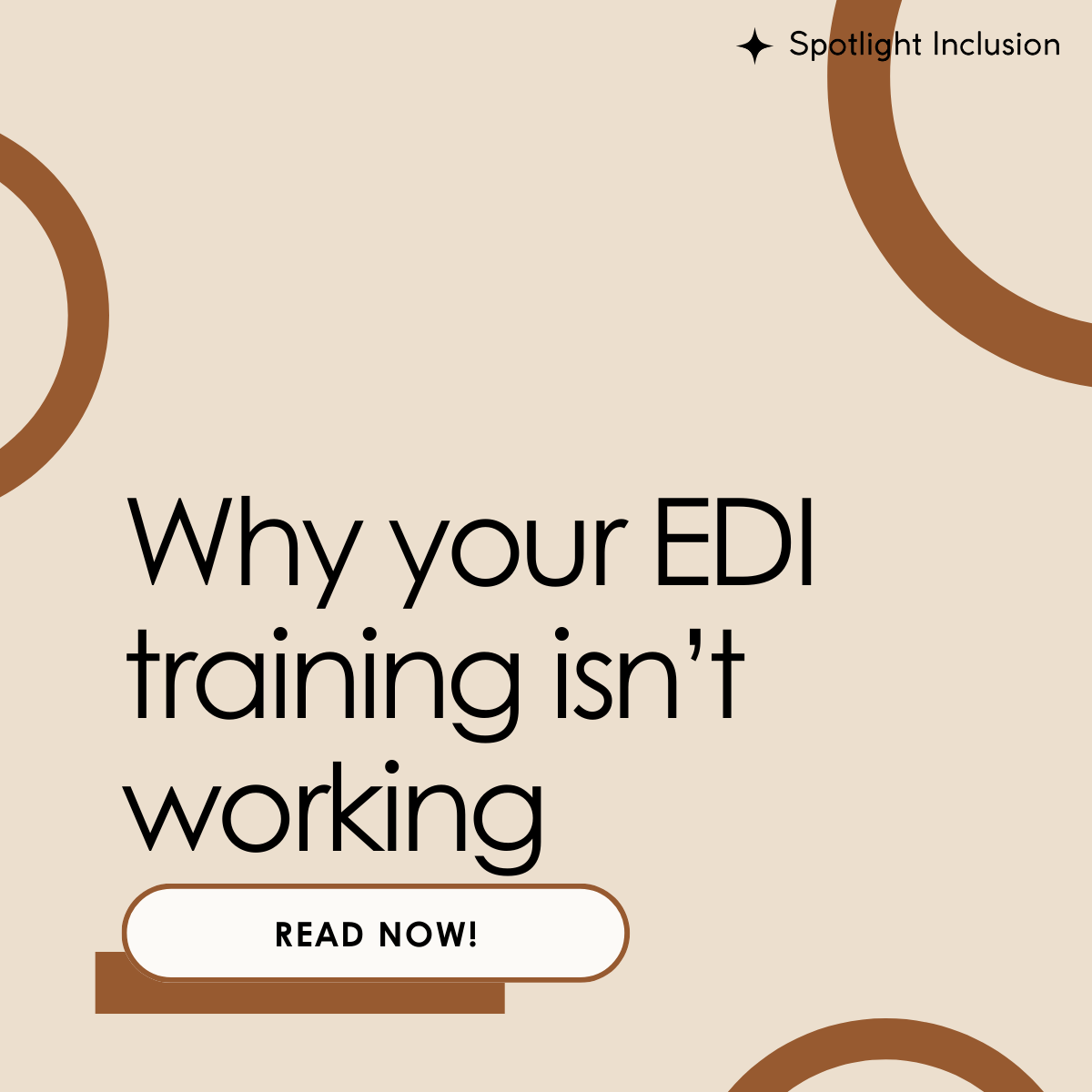Equity, Diversity, and Inclusion Blog
Perspectives on Labour’s Respect and Equality for All Commitments
We are about one month into a new Labour government.
There are some pressing issues around culture in all of its senses, and equality and equity. High on our list is a review of the Equality Act.
If the arts industry needs an overhaul to boost leadership diversity, how do we do it?
As someone who supports a number of arts organisations to become more diverse, equitable and inclusive, you might expect me to agree with the sentiments in The Stage’s latest article, and I do. But I wanted to add some of my own thoughts to it. If the arts industry needs an overhaul to boost leadership diversity, how do we do it?
5 ways to use your Employee Resource Groups to support your EDI strategy
Lots of organisations created Employee Resource Groups (ERGs) in the form of working groups, steering groups and committees at the start of their EDI journey. These groups are around 3-5 years old now, and we are often approached by clients wanting to know how best to use them after the first throws of their EDI commitment.
Why self-reflection is an important part of equity, diversity and inclusion work
As we move through the journey that equity, diversity and inclusion work is on, the importance of self-reflection has always been important, but is probably growing in importance.
Personal accountability and responsibility for our own knowledge, and understanding of the experiences of people who do not share our identities, is vital.
3 Reasons Why Discussions and Workshops are Better than Training
We support organisations in a range of ways, and one thing that has emerged over the last 18 months is the lack of results that training provides for our clients. Learning about equity, diversity and inclusion topics which are positioned as ‘training’ are becoming less and less effective. Find out why.
What will be the EDI focuses of 2024?
As we move into 2024, it is a good time for us to reflect on our EDI achievements and look ahead to what we think might be on the horizon for 2024.
We always tell our clients that EDI work is anticipatory. We need to be looking ahead, anticipating difference, and creating inclusive strategies for all. We can use the work and challenges of last year to inform what we think might be the challenges for the future.
So, we are sharing with you a few of the trends we think are going to feature for this year and beyond.
Why your EDI training isn’t working
Next to salaries, training is most often the next biggest spend when it comes to EDI work. When we are spending tens of thousands of pounds on training we might be forgiven for expecting the learning to result in change but there are some fundamental reasons why this doesn’t follow.
Case Study: How do we create long-term workforce diversification in our organisations?
Organisations often talk about the lack of diversity in talent pipelines. MishMash Productions has found a way to do this in a way that moves beyond surface level tokenistic diversity, to getting to the root of the barriers for historically marginalised people.
Why is it vital that executive leaders are part of any inclusion initiative?
'We're going to bring them into this later'. This is a common response we get when we ask what role the CEO of an organisation is going to play in the inclusion work we are being asked to support with, or if they are going to be part of the discussion or training.
'We're going to bring them into this later', is a bad idea. In this blog we explore why.
The main challenges of EDI in the workplace
Given the amount of information in the public domain about the benefits of creating a diverse and inclusive working environment, it would be understandable if you have the impression that creating such a place is easy and nirvana like. However, we as EDI professionals need to be careful that we don’t make this work appear to be simple and friction free.












